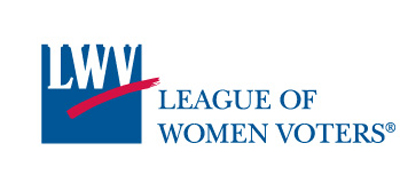By Michael Riordan
An ill-conceived plan to ship more than 100 million tons of cheap coal annually to Asia epitomizes what has gone seriously awry with the U.S. economy. Corporations have already off-shored millions of manufacturing jobs to China. Now we are being asked to export mountains of coal to fuel its factories and power plants, adding inexorably to Earth’s carbon- dioxide burden.
Scores of cities and towns in the Northwest, large and small — from Billings to Bellingham, from Sandpoint to Seattle — may be forced to bear the environmental brunt and health impacts of dozens of trains over a mile long chugging through them daily, spewing diesel fumes and coal dust into the air.
It reminds me of Russia. On a 2004 visit to the industrial city of Kurgan, east of the Urals, I endured the noise and dust from enormous trains rumbling through almost hourly, carrying many thousands of tons of coal from Siberia to the Russian heartland. My eyes watered and lungs ached, but the ordeal luckily lasted only weeks. Imagine the unfortunates who suffer these environmental insults their entire lives.
Project promoters Arch Coal, Ambre Energy, BNSF Railway, Goldman Sachs, Kinder Morgan, Peabody Energy, SSA Marine and their political allies tout the hundreds of American jobs their sprawling enterprise will create.
At the proposed Cherry Point shipping terminal north of Bellingham, for example, a few hundred permanent jobs might be created, according to official project plans. But jobs loading coal onto titanic ore carriers will add little but money to local economies. Few transferable skills will be gained by the workers, who will suffer adverse effects of inhaling coal dust daily. Their employers had better provide good health insurance.
In pursuit of ever-growing quarterly profits, financial moguls have gone too far. They seem willing to risk the health and well being of people living astride railways and along shipping channels in order to fuel a few rapacious Asian juggernauts.
Companies pay the U.S. government, which leases the Powder River Basin fields in Wyoming, less than a dollar a ton to strip-mine the coal. Their transportation-industry allies plan to offer several hundred jobs loading this dirty cargo, paying about half that per ton, while raking in almost $27 a ton, according to Cherry Point projections. Chinese buyers pay over three times that for coal, but less than 35 cents per ton would go toward state and local taxes. Does that seem fair?
Concerned citizens are trying to halt this vast, multistate boondoggle in its tracks. But if they cannot, we must at least insist that promoters pay the full social and environmental costs. The federal government should charge at least $10 a ton for companies to extract coal from public lands. Equivalent to only $5 per ton of carbon dioxide eventually produced, such a fee represents a fraction of the costs of the resulting atmospheric burdens.
States through which coal trains pass — Montana, Idaho, Oregon and Washington — could then use the revenue to help mitigate the resulting damages. So could counties where this coal is loaded onto ships, which will suffer the worst impacts.
Though a drain on profits, these fees represent good science, economics and public policy. Businesses that inflict unreasonable damages on society and the environment must pay the costs of these insults.
And while most of the fees should go toward mitigations, some could be devoted to funding an alternative future based not on jobs shipping our fossil wealth to Asia but on green jobs building efficient infrastructure to take better advantage of the Northwest’s renewable energy resources. Such local, knowledge-intensive construction jobs are nearly impossible to export. That would be a rational, economical way to begin the overdue transition to the low-carbon future our children and their children must eventually embrace.
Michael Riordan resides on Orcas Island, where he writes about science, technology and public policy. He is author of “The Hunting of the Quark.”
First published in the Seattle Times, July 2, 2012.
**If you are reading theOrcasonian for free, thank your fellow islanders. If you would like to support theOrcasonian CLICK HERE to set your modestly-priced, voluntary subscription. Otherwise, no worries; we’re happy to share with you.**








It would create far more jobs in the USA if rather than shipping by rail, a canal would be dug over to Montana and then they could put the dirty shipping terminal there.
Well written Michael. It’s extremely difficult to fathom that this will happen. Could these “financial moguls” really get away with this? I feel no amount of taxes/monies could ever compensate for the environmental damage and health of individuals. Your suggestion of the government charging these companies fees to help compensate damages should definately be the least the government should do if this environmental disaster should happen.
Let me see if I’m getting this right– our corporate controlled government is leasing our public lands to corporations to strip mine 100 million tons of coal at less than $1 a ton, who then ship it to China to power factories owned by both U.S. & Chinese corporations, (some of who are responsible for the outsourcing of U.S. jobs), in order to manufacture cheap goods which are then shipped back to the U.S., and sold to U.S. citizens by some of the same corporations at a vastly inflated price… all at an extreme environmental cost? Anything wrong with this picture? It’s enough to make a man want to move to a small island.
A man, a plan, a canal — Montana! Love the Montana canal idea!
Supporting the idea of digging a canal to export coal is a short-term approach to jobs, and misses the entire point. This is an environmental catastrophe in every way, shape, and form. If the governments/corporations put as much time, energy, and resources into developing truly alternative energy sources it would create more long-term more jobs, and a healthier environment (i.e. that which allows us to live).
Of course it’s a catastrophe, M.J. You are missing the point of the canal idea — dark humor!
Michael,
I think the cost of CO2 is much higher. I have seen estimated in the $45 to $100+ per ton.
Also, I have been surprised to read that Rep Rick Larsen is in support of the project. Sad black mark on his environmental record.
Oh… duh. Sorry Moana. I’m laughing at myself now! MJ
Thanks for the good comments.
Jay, you are correct. British Columbia now has a carbon tax of $30 per ton of carbon dioxide produced, and the proceeds go to reducing other taxes. According to an OpEd in the New York Times July 5, it’s already having beneficial effects on the BC economy.
Australia just instituted a coal (and iron) mining tax on exports.
My suggestion is a (thinly disguised) carbon tax of sorts. But it only amounts to $5 per ton of CO2 produced and impacts mainly other countries, not US consumers.
You have to start somewhere!